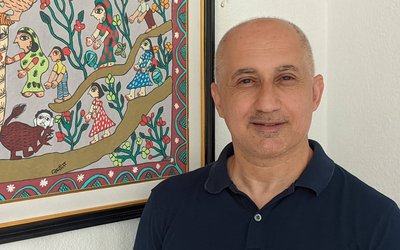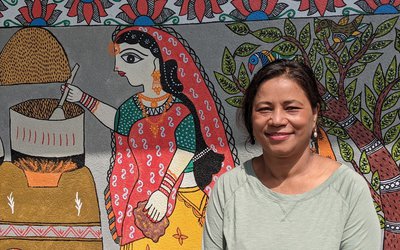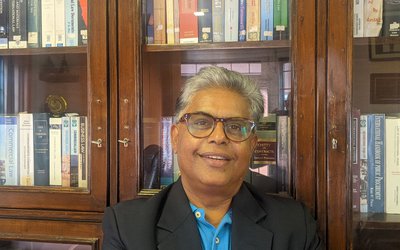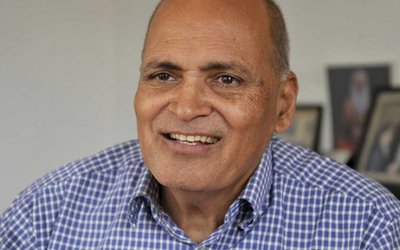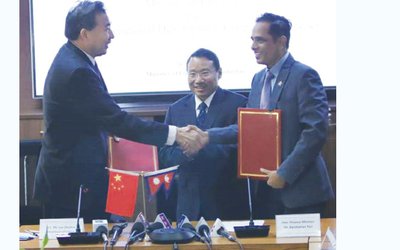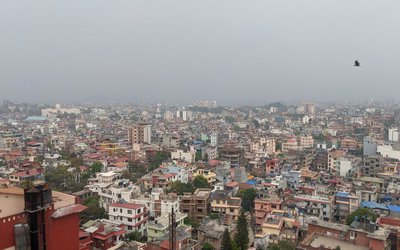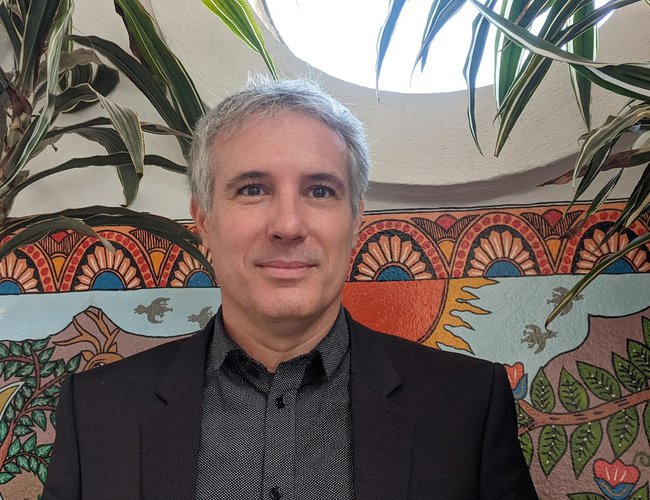
What is your opinion on the potential for carbon trading in Nepal?
Specifically, we are working on a project to distribute improved cooking stoves to households and also exploring the potential for a reforestation project. The Imperative is currently focused on carbon credit projects that have the greatest positive impact on both the climate and sustainable development. Our project supports a balanced issuance profile and a net-zero-aligned portfolio trajectory. We achieve this through front-end avoidance-based credits and a long tail of removal-based credits.
What is your opinion on the voluntary carbon market?
We believe that the voluntary carbon market is a way to develop the economy of countries like Nepal. Developing the economy of Nepal would have a significant impact on the communities. For instance, we aim to distribute over 200,000 improved cookstoves. The local communities will benefit greatly from this stoveas it saves time and money. Additionally, it will protect health by significantly reducing indoor cooking smoke. By selling carbon credits, we can generate revenue and share the profits to implement activities that benefit the local communities, such as health centers and distributing free plants for reforestation.
IMPERATIVE is implementing the project in areas where traditional smoky stoves are still in use, causing a high number of annual deaths among women due to respiratory issues.
The project aims to reduce smoke and prevent mortality caused by respiratory diseases. Our study shows that women in terai and hills are particularly affected by respiratory problems.
During your recent visit, did you interact with the communities?
Yes, we met with people, especially women, and discussed the project and the cook stove. We have already distributed some stoves in the communities and also spoke with those who are currently using our improved stoves. My impression is that there is a lot of interest in our improved stoves. Currently, our project is designing community-based improved cook stoves. During our visit to Madhesh, we met with people from a few households and discussed their experiences. We discovered that our stoves meet their cooking needs, which is an important aspect of our project.
Didyouhaveany meeting with government officials or relevant stakeholders during your visit? How fruitful was this meeting?
During our visit, we had the opportunity to meet with the government officials from Ministry of Forest and Environment, Climate Change and Development Advisor to Rt. Hon. Prime Minister, State Minister of Madhesh Province and other officials at both the federal and provincial levels. Their response to our project was overwhelmingly positive. Our project will not only bring investment to the area but also benefit the local economy. One of the key aspects of our project is the construction of a factory dedicated to the production of improved cook stoves. This represents a significant long-term investment in the project.
Can you explain how yourimproved cook stoves differ from those currently in use? How much carbon can a cook stove reduce?
The main difference is that our improved cook stoves are designed based on the community's input and needs. They use local raw materials. If we distribute fancy cook stoves imported from other regions and if it does not fulfill their daily requirements, people are likely to leave them unused, which would have no impact or benefit at the end of the day. Our improved stove cannot eliminate all smoke, but it will significantly reduce it. In Madhesh, we noticed that our design maximizes benefits.
Have people who started using the improved cook stoves reacted positively?
Yes, they are quite happy. They have also mentioned that the stoves are user-friendly and can utilize residue stored in the home. This is good news for all of us, as the improved cook stoves are useful for meal preparation. They have requested a second stove as they want to cook rice, lentils, and vegetables simultaneously. Our cookstoves distributed in Madhesh have isportable one with one fire-mouth. However, we are distributing different models of stoves for the hills, including fixed cook stoves with chimneys and two fire mouths.
Could you please confirm which type of stove you are distributing for the hilly areas?
The stoves designed for the hills differ significantly from those distributed in the Madhesh province. In the Terai region, we have designed a portable stove that is in high demand among the communities as they prefer to cook outside their homes. In the hills, we are developing fixed cook stoves with chimneys for indoor use. These stoves are more energy-efficient, using almost 30% less fuel than traditional stoves. The chimney reduces smoke inside and outside the kitchen. Nepal has committed to achieving zero emissions by 2045. Our projects, such as the cook stoves, aim to reduce and sequester emissions. The reforestation project we want to invest in Nepal will be part of the sequestration process. Finally, our project and strategy in Nepal fully support Nepal's potential to become a leader in attracting climate investments.
- Nepal’s Relationship With India Is Deteriorating: Former Diplomat Acharya
- Apr 27, 2024
- Weather Forecast: Partly Cloudy In Bagmati And Koshi Province
- Apr 27, 2024
- Three-Day Global Science-Policy Forum: Socially Inclusive Solar Irrigation Systems Concluded
- Apr 26, 2024
- Nepal And China Ink Two Agreements , PM Prachanda Meets Chinese Delegation
- Apr 26, 2024
- Nepal Army Held National Cyber Security Symposium
- Apr 26, 2024




